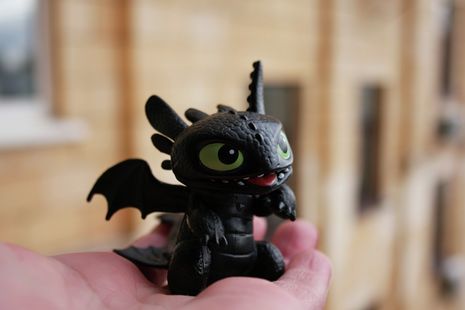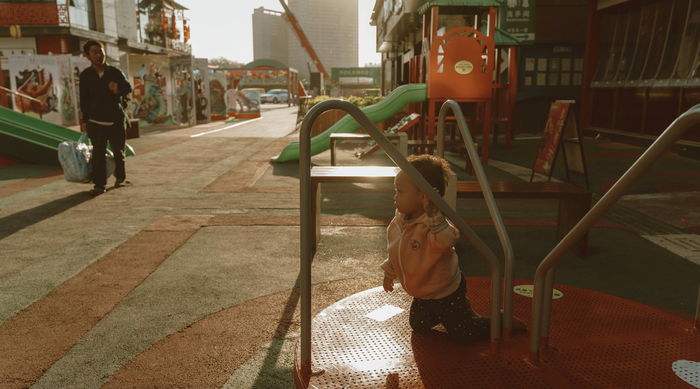The plight of live-action
After the release of How To Train Your Dragon, Hilary Lau asks if live-action films are preserving stories or profit

This past June could have been the beginnings of a Dean DeBlois summer – a celebration of a man whose name you might not have heard, but whose animated films you’ve definitely seen. At the end of May, Walt Disney launched their live-action Lilo and Stitch, a nostalgic homage to the DeBlois original in 2002. Quick on its tail was the How to Train Your Dragon live-action, directed by none other than DeBlois himself, a refashioning of one of his most well-loved animations. Yet upon leaving the theatre, when I was asked how I found the new rendition of the classic film, all I could muster was a half-hearted shrug.
“It wasn’t bad,” I recanted hurriedly, “it was just … I think I’ve seen this film before.”
That was because I had. We all have.
The live-action How to Train Your Dragon is, in every way, an alright movie. Mason Thames makes for a convincing gawky Hiccup, and so does Nico Parker’s girl-crush Astrid. Among fresh faces, Stoick (played by seasoned actor Gerard Butler) fortifies the performance, adding nuance to an already moving story. Despite all of this, I can’t find it in me to feel enthusiastic: it was the same old story, just embellished with a fancier new CGI coat. I couldn’t help but wonder when our criteria for a good film had dulled to a muted relief that our comfort movie hadn’t been crushed in Hollywood’s capitalistic claws.
“In just 2019 alone, five live-action films were created, repackaged, and resold to audiences”
Sceptics could have been quickly shut down if the repackaging of live actions as new movies was an isolated scenario. Take a look at Disney, one of the biggest IP holders in the film industry. In just 2019 alone, five live-action films were created, repackaged, and resold to audiences, feeding on the manic need for entertainment in the COVID lockdown. Nostalgia was a powerful moneymaker: faced with endless days of uncertainty, we yearned to return to bygone days that we took for granted. And the most frustrating thing? It works.
Time and time again I find myself going back to old childhood favourites, getting my interest piqued by revamps. Even Snow White, the box-office flop that it was, generated enough buzz on social media platforms for a plethora of YouTube roasts and TikTok memes. When modern media consumption looks at numbers as an indicator of success, it doesn’t truly matter if you watch out of admiration or spite. In this regard, notoriety and fame are pretty much one and the same. The very fact that I can sit here writing this review means that I too am not immune from this hypocrisy – I paid my share of money to purchase that ticket, knowing that I wouldn’t be in for a surprise. Hell, it’s not like we’ve managed to bring actual dragons to life.
But what exactly makes a live-action movie compelling? Perhaps it’s the flesh-and-blood people, the dream-come-true scenery, the exhilaration of what technology has helped bring to life. Does that logic still hold when half the set is CGI, and the dragons are still artificial puppets? When it comes to animation, it was never about realness. Ultimately, the question we confront is something much simpler: did I love the original solely because of how the animation looked, or because of how the story made me feel?
“It’s about profit-making, not storytelling”
This trend of recycling previously established animation IPs into live-action films is reflective of the increasingly skewed priorities of the movie industry – it’s about profit-making, not storytelling. Tried-and-tested tales are less prone to box-office flops, since, at its worst, the content is still foolproof, while indie film studios and international directors get sidelined by a gluttonous Hollywood monopoly. Big corporations opt for performative activism, promising diversity, equality, and progress all the while barring marginalised creators from bringing their creations to the forefront. At best, this is exploitative of loyal fanbases and at worst, it’s a cruel monopoly that keeps the industry from those with the passion but not the means.
Moviemakers should be taking the risk of doing something unusual, instead of letting creativity die out in the face of the capitalistic pursuit of a ‘safe’ live-action. I would be a fool to cling to ideals, to believe that every movie is a passion project where profit isn’t in the equation. But one can only flog a dead horse for so many times before the spectacle grows dull, and no amount of special effects or star-studded cast lists can bring back the glory days if the rest of the movie remains a carbon copy of its animated original.
I’m not going to a theater for special effects galore. I’m going to watch a movie. Let’s just hope that recent box office failures are enough of a wake-up call for directors and audiences alike.
 News / Judge Business School advisor resigns over Epstein and Andrew links18 February 2026
News / Judge Business School advisor resigns over Epstein and Andrew links18 February 2026 News / Gov grants £36m to Cambridge supercomputer17 February 2026
News / Gov grants £36m to Cambridge supercomputer17 February 2026 News / Hundreds of Cambridge academics demand vote on fate of vet course20 February 2026
News / Hundreds of Cambridge academics demand vote on fate of vet course20 February 2026 News / CUCA members attend Reform rally in London20 February 2026
News / CUCA members attend Reform rally in London20 February 2026 News / Union speakers condemn ‘hateful’ Katie Hopkins speech14 February 2026
News / Union speakers condemn ‘hateful’ Katie Hopkins speech14 February 2026










